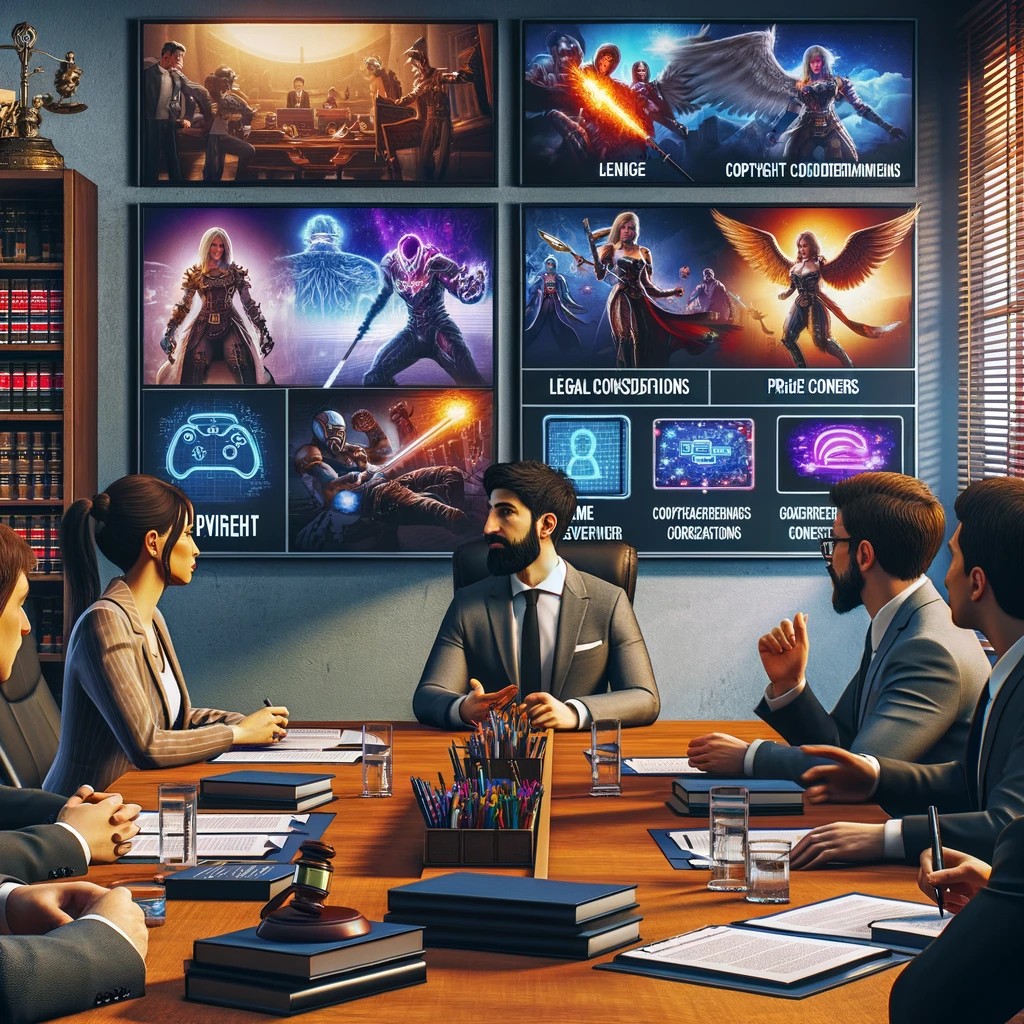The video game industry has become a global phenomenon, entertaining millions and generating substantial revenue. However, the digital playground is not without its legal challenges.

From intellectual property concerns to issues related to online interactions, we provide an overview of key legal considerations that developers, publishers, and players should be aware of in the realm of video games.
Intellectual Property in Gaming
Protecting intellectual property (IP) is paramount in the gaming world. Game creators must safeguard their intellectual assets, including characters, game mechanics, graphics, and storylines, through copyrights, trademarks, and patents to prevent unauthorized exploitation.
Copyright Infringement Concerns
Developers often grapple with the fine line between homage and potential copyright infringement. Ensuring originality and understanding the boundaries of fair use are crucial to avoiding legal disputes over similarities in game design, code, or artistic assets.
Licensing Agreements and Royalty Arrangements
Effective licensing strategies are key to utilizing third-party content like music or brand partnerships. Negotiating fair licensing terms and understanding royalty obligations are essential for legal compliance and equitable compensation arrangements.
User-Generated Content (UGC) Management
UGC presents unique challenges in terms of copyright and content moderation. Developers need to establish comprehensive terms of service that clarify UGC ownership, licensing rules, and moderation policies to mitigate legal risks.
Regulation of Loot Boxes and Gaming Monetization
The debate over loot boxes, often likened to gambling, has drawn regulatory attention. Game developers must stay abreast of evolving laws and regulations regarding in-game purchases and loot box mechanics in different jurisdictions.
Data Privacy and Security in Online Games
Online gaming platforms must prioritize user privacy and data security. Adhering to data protection laws and implementing robust security protocols are necessary to protect user information and maintain trust.
Accessibility and Compliance Standards
Ensuring game accessibility for players with disabilities is both a legal obligation and a moral imperative. Developers should strive to meet accessibility standards, providing inclusive gaming experiences through design modifications and customizable options.
Employment Laws and Industry Practices
The gaming industry’s employment practices, particularly concerning crunch culture, are subject to legal considerations. Adhering to labor laws and promoting healthy work environments are critical for sustainable industry practices.
Virtual Property Rights and In-Game Transactions
The concept of virtual property rights poses complex legal questions. Clear policies regarding the ownership and real-world implications of in-game purchases are essential to address potential legal issues related to virtual assets.
Community Management in Online Gaming
Managing online gaming communities involves addressing challenges like toxicity and harassment. Effective community management strategies, including content moderation and reporting mechanisms, are vital to ensure a safe and enjoyable gaming environment.
Developers, publishers, and players alike should stay informed about legal developments to ensure a thriving and legally compliant digital gaming ecosystem. Proactive measures, ethical considerations, and legal compliance are essential for the continued success of the video game industry.